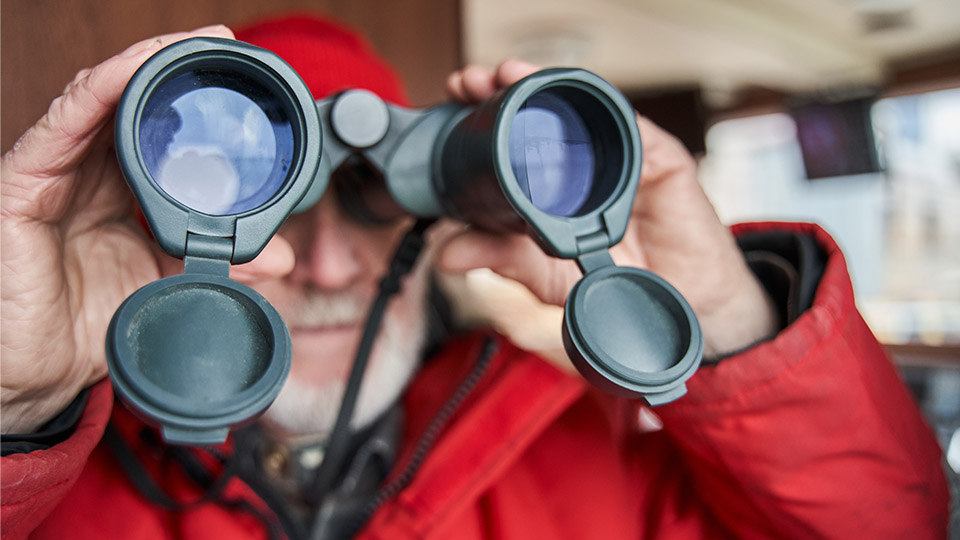
CONTACT BIMCO
Dr. Bev Mackenzie
Head of Intergovernmental Engagement
London, United Kingdom
- +45 4436 6881
- hsse@bimco.org

Did you know that alongside its work at the International Maritime Organization (IMO), BIMCO has observer status at the London Convention/London protocol, the United Nations Framework Convention on Climate Change (UNFCCC) and the International Oil Pollution Compensation (IOPC) Funds? In fact, the observer role is one of the backbones of BIMCO’s work. Here’s why it matters.
It is increasingly important that shipping is properly represented in high-level climate negotiations and in the international arena. For these reasons, it is crucial that BIMCO highlights initiatives which our members are involved in and the role they are playing in reducing the climate impact of shipping. This could be by applying state-of-the-art management of biofouling as highlighted at BIMCO’s official side event at the Conference of the Parties (COP26) in Glasgow, UK.
As the attention given to shipping is growing, this provides a tremendous opportunity to continue to raise awareness about how crucial shipping is – both within and outside of our industry. That means that it is also an opportunity to call on influential stakeholders to show what shipping is doing to improve sustainability, discuss what is needed in terms of the regulatory environment and talk about the finance and research and development needed for the industry to transition. BIMCO’s observer status at various organisations is therefore a crucial task – for the benefit of our members and the industry as a whole.
The Convention on the Prevention of Marine Pollution by Dumping of Wastes and Other Matter 1972, called the London Convention for short, is one of the first global conventions to protect the marine environment from human activities and has been in force since 1975. Its objective is to promote the effective control of all sources of marine pollution and to take all practicable steps to prevent pollution of the sea by dumping of wastes and other matter. Currently, 87 States are Parties to this convention.
In 1996, the London Protocol was agreed to further modernise the convention and, eventually, replace it. Under the protocol, all dumping is prohibited, except for possibly acceptable wastes on the so-called "reverse list". The protocol entered into force on 24 March 2006 and there are currently 53 parties to the protocol.
The London Protocol provides a framework for parties to effectively prevent pollution of the sea caused by dumping or incineration at sea of wastes and other matter, and by activities including carbon capture and storage in sub-seabed geological formations and marine geoengineering activities such as ocean fertilisation. The London Protocol takes a precautionary approach and prohibits all dumping of wastes at sea, except for those on a list of wastes that may be considered. However, any wastes on the list must be assessed and given a permit before being dumped at sea.
The London Protocol is one of the key pillars of marine environment protection together with the International Convention for the Prevention of Pollution from Ships (MARPOL), the United Nations Convention on the Law of the Sea (UNCLOS) and Regional Seas Conventions. Its objectives include protecting and preserving the marine environment from all sources of pollution.
A growth in sectors of the blue economy combined with an increasing need to understand and protect the marine environment means there is a need to take a truly holistic view with all sea-based users working much more closely together to address what are big societal issues. It is important that views of the shipping community and BIMCO members are conveyed in these discussions.
The UNFCCC is the United Nations Framework Convention on Climate Change. It entered into force on 21 March 1994. Today, it has near-universal membership. The 197 countries that have ratified the convention are called Parties to the Convention. The ultimate objective of the convention is to stabilise greenhouse gas concentrations "at a level that would prevent dangerous anthropogenic (human induced) interference with the climate system." It states that "such a level should be achieved within a time-frame sufficient to allow ecosystems to adapt naturally to climate change, to ensure that food production is not threatened, and to enable economic development to proceed in a sustainable manner.”
Since the early days of the climate change convention, non-governmental organisations (NGOs) have been actively involved, attending sessions and exchanging views with other participants including delegates. It is recognised that this involvement allows vital experience, expertise, information and perspectives from civil society to be brought into the process to generate new insights and approaches. Furthermore, the access and participation of observers to the process promotes transparency in this increasingly complex universal problem. Such participation flourishes in an atmosphere of mutual trust which acknowledges respect for others and their opinions and takes into account the nature of intergovernmental sessions.
The International Oil Pollution Compensation (IOPC) Funds are two intergovernmental organisations (the 1992 Fund and the Supplementary Fund) which provide financial compensation for oil pollution damage resulting from spills of persistent oil from tankers. The funds were originally set up some five decades ago and have evolved over many years to the international liability and compensation regime in place today.
At the meetings of the IOPC Funds which took place on 1 - 5 November 2021, the Governing Bodies of the Funds elected Mr Gaute Sivertsen of Norway as the Funds’ new Director.
BIMCO strongly supports the international liability and compensation regime for oil pollution damage and is an observer at the IOPC Funds. The core membership of BIMCO includes more than 50% of the world’s tanker fleet. BIMCO therefore takes part in the IOPC Funds meetings to provide industry input and monitor deliberations and decisions of the funds which potentially have implications for its membership.